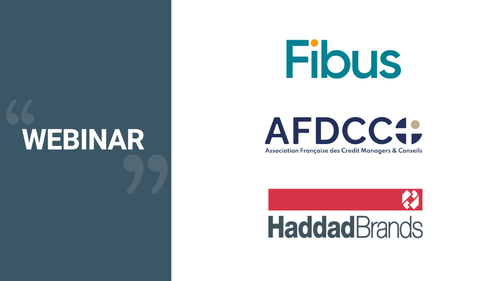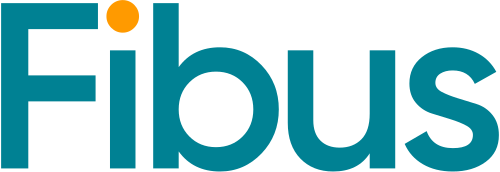Home|News|Factoring: the preferred method of financing for growing companies and companies under LBO
Factoring: the preferred method of financing for growing companies and companies under LBO
In the 2022 edition of the ‘’Capital Investissment’’ Guide published by the magazine Décideurs, read the interview with Thibaut Robet and Gaëtan du Halgouët on all the benefits of factoring as a financing solution for private equity funds.


Thibaut Robet and Gaëtan du Halgouët head up Fibus (formerly Chateaudun Crédit), a European benchmark in factoring consultancy, who are here to help us come to grips with this private equity financing solution.
DÉCIDEURS. Could you start by reminding us of what factoring is all about ?
Thibaut Robet. Factoring is a financing technique that allows a large portion of a company’s accounts receivables to be transformed into available cashflow. For BtoB firms typically paid at 60 days by clients, it is the largest short-term financing option out there.
Who is this financing solution for?
Gaëtan du Halgouët. The main users are growing companies. Those that need resources to continue to accelerate their growth. Factoring provides them with the cashflow springboard they need to continue to purchase supplies and to hire. It is a low-cost, uncapped resource stream adapted to a company’s development. Such high-performance and profitable companies find factoring to be both a reliable and sustainable solution. And finally, whilst factoring is often used as a means of boosting growth, it is also a tool ideally suited to crisis situations, as factoring companies are astute at meeting their commitment even when companies suffer financial difficulties.
"Factoring is the short-term financing solution which offers the best cost-to-return ratio"
"Factoring is the short-term financing solution which offers the best cost-to-return ratio"
Isn’t it true that factoring is costly?
T. R. We still hear this preconception a lot. But in reality, it is undeniablye the short-term financing solution that offers the best cost-to-return ratio over the term of commitment by the lender.
If a company uses factoring, must it to inform its clients?
G. du H. In the vast majority of European countries and, US states, there is no legal obligation to do so. However, some commercial agreements stipulate that a supplier have the consent of its client to transfer its invoices to a third-party financing provider. As a result, 95% of factoring agreements signed by our team over the last five years are confidential.
Where can factoring be undertaken under optimal conditions?
T. R. The financial terms, and even eligibility for factoring depend on the geographical location of the invoice-inssuing company. If I issued an invoice in Germany to a client in Brazil, I will benefit from European financing terms. However, if I invoice my Brazilian client from my Brazilian subsidiary, the Brazilian rates will apply. We have experimented with factoring in 25 countries in Europe, North America and Australia.
"Factoring always remains operational...Moreover, with non-recourse factoring, it does not affect debt levels."
"Factoring always remains operational...Moreover, with non-recourse factoring, it does not affect debt levels."
Factoring is a bottom-line financing tool, how is this of interest to investment funds?
G. du H. Companies under LBO more often than not have confirmed credit lines (RCF, or: revolving credit facilities) to be able to withstand any potential cashflow requirements. These lines are limited in their amount and always have a clause (covenant) requiring early repayment in the event of any difficulties. Even in the event of financial difficulties, factoring always remains operational. Moreover, with non-recourse factoring, it does not affect debt levels. This, consequently, allows companies to increase their cashflow whilst improving their financial situation. An increasing number of private equity firms want their holdings to use factoring.
When do private equity funds use factoring in their holdings?
T. R. The subject of factoring is generally considered ahead of an acquisition, so as to be set up within a month following closing. We have previously negotiated this just after signing for an initial financing available on the same day as the closing. Often, it is implemented to finance external growth operations, to participate in company refinancing or even to facilitate dividend payments.
Are you able to discuss any recent deals?
G. du H. In 2021, our team worked to set up around 30 or so new agreements, whether for international non-recourse factoring programmes or for French small companies. For one of these deals, we supported a European group with 2.3 billion euros in sales revenue to replace and expand its factoring programme. In the space of three months, we helped the company receive a line of 300 million euros confirmed over five years and to seamlessly transfer over 23 entities across nine countries. We also supported a host of our clients in extending their programme to other group entities, which is a clear display of the usefulness of factoring for user firms.
Why did Chateaudun Crédit change name to Fibus?
T. R. Over the past five years, a total of 50% of our work has been with international groups, despite our name… One of our partners recently asked us: “How is it that a company with such an un-international name, which is so difficult to pronounce manages to develop internationally?”. We had to accept that our name – which is the street where our first office was opened, didn’t say much about what we do. So we decided to move on from Chateaudun Crédit and become Fibus, still with the same goal of financing and securing your business!
Remind us what it is that Fibus does?
T. R. Fibus helps French firms and international groups finance and secure their business. We meet this need through three core business services: factoring, credit insurance and digital services. With factoring, we fully manage our client projects from the initial feasibility study to operational set-up, including team training and the tender process. With credit insurance (client risk insurance), we assist clients in choosing the best level of cover possible and integrate this in an optimal manner into their credit management processes.
Finally, our IT solutions team both develops and integrates with our clients a range of tools to facilitate and automate certain financing management and client risk tasks. Fibus, therefore, comprises three distinct teams, the factoring team coordinated by Romain Chaufour and Maxime Bertin; the credit insurance brokering team coordinated by Marc Chaqués; and finally, the IT solutions team headed up by Frédéric Pouhet.
Finally, our IT solutions team both develops and integrates with our clients a range of tools to facilitate and automate certain financing management and client risk tasks. Fibus, therefore, comprises three distinct teams, the factoring team coordinated by Romain Chaufour and Maxime Bertin; the credit insurance brokering team coordinated by Marc Chaqués; and finally, the IT solutions team headed up by Frédéric Pouhet.
What’s new at Fibus in 2022?
G. du H. At the turn of this year, we welcomed two new managers. Firstly, Frédéric Pouhet who was responsible for accelerating the Fibus group’s digital transformation, and Marc Chaqués who will further bolster credit insurance operations. We are planning the recruitment of a further six people across all three core business areas at Fibus. We are also working on a new offer for our software solution with new functions to facilitate operational oversight of factoring and credit-insurance agreements.
Read the full interview
Read the full interview
These articles may interest you

How Chimirec unlocked the full potential of its factoring with ARI Trade, by Fibus Digital
With ARI Trade, the Chimirec Group has reduced the time spent managing its factoring operations from 4 days to 1.5 days per month — representing a total time saving of 30 days per year.
Additional benefits for Chimirec’s CFO include improved working capital, a consolidated view across 15 factoring contracts, and enhanced receivables traceability.
Additional benefits for Chimirec’s CFO include improved working capital, a consolidated view across 15 factoring contracts, and enhanced receivables traceability.

How the Credit Manager safeguards the company’s cash flow
A function at the heart of financial stability The Credit Manager’s role extends far beyond preventing bad debt: today, they act as the true conductor of the order-to-cash process, ensuring the company maintains healthy, predictable, and actively managed cash flow. We
spoke with Thibaut Robet, CEO of Fibus, a firm specialising in order-to-cash management.
spoke with Thibaut Robet, CEO of Fibus, a firm specialising in order-to-cash management.

How can credit insurance support growth in a sector under pressure?
Economic difficulties are mounting and weighing more heavily on certain sectors: how can you make the Credit Manager a business partner who supports the company's growth? Discover the testimony of HADDAD BRANDS EUROPE in the webinar hosted by Alexia Monteillet, Credit Risk Manager at HADDAD BRANDS EUROPE, and Marc Chaquès, Credit Insurance Director at Fibus, in partnership with the AFDCC.
Contact us, so that, together, we can find the best solution for financing your accounts receivable.
Write us
